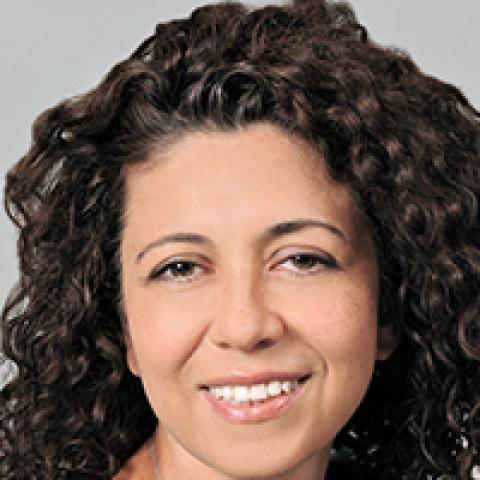Just two years ago, Al-Monitor reported on a rise in the number of female soldiers in the Turkish Armed Forces. Then the Ministry of Defense picked a fight by deciding women were no longer needed in the navy and air force.
Every year, the academies accepted a small number of female students who have finished high school. These students had to meet a long list of physical, medical and academic standards, along with securing high scores on standardized college entrance exams. On this year's applications, however, the option allowing women to apply for the navy and air force disappeared. This came as a shock to potential applicants, their families and women’s organizations, especially given Turkey's history.
Female pilots have had a special place in Turkey's air force. Sabiha Gokcen, the world’s first female combat pilot, is one of the adopted daughters of Mustafa Kemal Ataturk, the founder of modern Turkey. After entering the Military Aviation Academy in 1936, she flew 32 combat missions and logged 8,000 flight hours. Gokcen became a role model for Turkish women, who had already gained suffrage rights in 1934. The first female NATO pilots are also from Turkey. From 1955 to 1959, 20 female students were accepted into the Turkish Air Force Academy. In 1992, all military academy branches started accepting women.
So after having the door slammed in their faces in 2017, potential female applicants and their families started organizing on social media, particularly those who wanted to apply to the air force. College student Tugba Cerav initiated an online petition on behalf of her sister and other students who dream of joining the air force. On Twitter, several students pleaded their cases with the Ministry of Defense.
These young women’s pleas were heard first and foremost by a courageous lawmaker, Aylin Nazliaka. In her third term in parliament, Nazliaka has a solid reputation for defending the rights of diverse groups who lack a voice in Turkish politics. It was Nazliaka who carried this issue to the Turkish parliament.
On Jan. 16, she told Al-Monitor, “Today we have some good news. The Ministry of Defense has reversed the decision, so female students can apply to all academies."
Nazliaka explained that this is not the first time she has seen the government reverse a decision. “In 2013, the Ministry of Agriculture and Forestry announced that women would not be accepted as forestry wardens. It said that this job was not suitable for women because the physical demands were too harsh. So I made calls to female AKP [Justice and Development Party] lawmakers and women’s associations and initiated a social media campaign to raise awareness about the issue. Finally, the decision was reversed,” she said.
On Jan. 16, Defense Minister Fikri Isik addressed the change. “Public opinion has become sensitive to this issue. … If there are applicants, females will be accepted to these schools,” Isik told the press. He went on to elaborate — in rather vague terms — that the decision to exclude women had been based on the idea that there was no need for female officers. “So I told my colleagues, ‘If there is supply and demand, we should accept them.’ Since there is supply, they should be allowed.”
Is this a happy ending to a bad policy? It's too soon to tell. As oversight in Turkish politics decreases, the number of bad and arbitrary choices the AKP government makes increases. These decisions are only reversed when there is a public outcry and the decisions' sponsors are not adamant.
Given that only two years ago the armed forces were determined to increase the number of women in their ranks, what was the real justification for barring women from applying? Can we be sure that tomorrow the army won't announce it is closing its doors to female cadets?
Nazliaka, like several other women’s rights advocates, thinks this decision to exclude women is in line with the AKP’s mentality to keep women out of sight and out of mind. Repeatedly, the AKP has developed policies designed to confine women to the private domain. Turkish President Recep Tayyip Erdogan and several senior AKP members have repeatedly demonstrated that they differ from previous administrations regarding ideas of "appropriate behavior" for women.
Nazliaka succinctly summed up the situation: “During the AKP era, we have stopped trying to make progress with regard to women’s rights and liberties. Rather, we view it as success if we can preserve what we have now.”
That is precisely the worrisome point. In the first decades of its establishment, the Turkish Republic made significant inroads to women’s rights and achievements. But now, even as many Western armies are considering women for combat missions, female Turkish students yearning to be military officers have to struggle to regain the right to apply to military academies.
A retired admiral told Al-Monitor: “From the days when I was a captain until now, I see that women in uniform are marginalized, stuck at clerical positions. The society is pushing women back to their homes, and the armed forces reflect this change. Women in uniform do not receive the respect they deserve anymore. In the navy and air force, we had more women engaged in combat planning roles and international missions. So I would suspect in the coming years the situations will only be worse for women."
He added, "Two decades ago, I would have encouraged my daughter to join the Turkish Armed Forces. Today, I am not so confident it is a wise decision for a woman.”
Yet acknowledging all the hardships Turkey is going through, Nazliaka has not lost hope. “There are modern, progressive, well-educated and hard-working people in Turkey," she said. "And our numbers are not small. We are here, and working.” But who can guarantee that the AKP will not change its mind again and deny female students entry to military academies next year?







